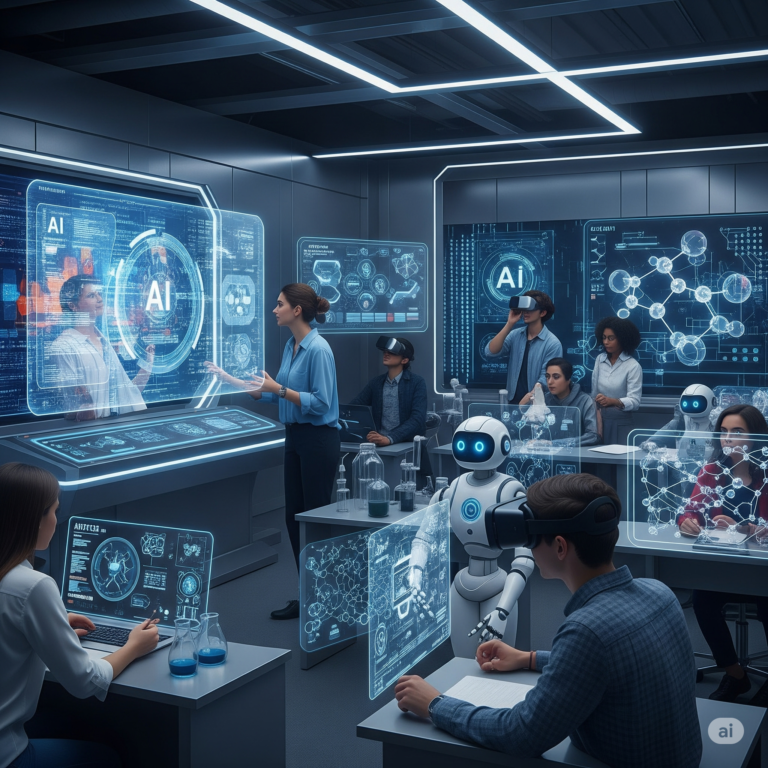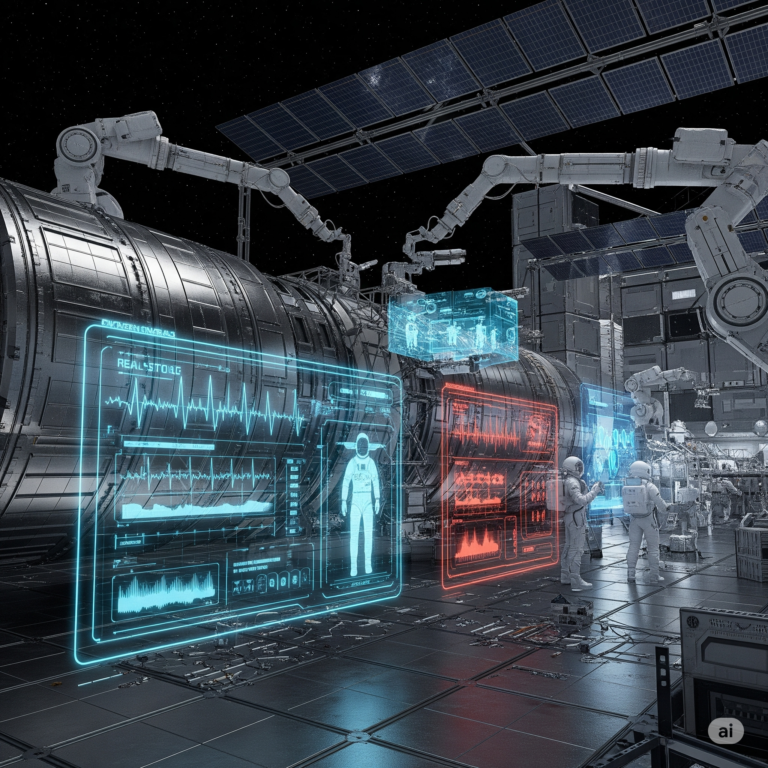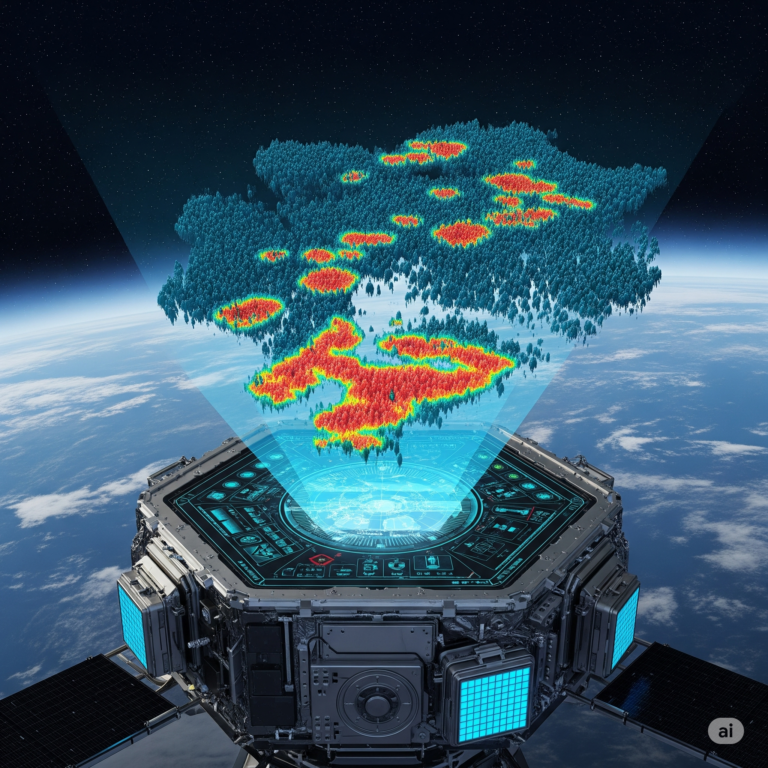Artificial Intelligence (AI) has evolved dramatically in recent years. We’ve moved from reactive machines to AI systems that demonstrate planning, goal setting, and even autonomous action. This evolution has given rise to a new branch of AI known as agentic AI. Unlike traditional AI models that require human prompting, agentic AI systems are designed to act independently, pursue goals, and make decisions in complex environments. As we peer into the future, it becomes increasingly important to understand The Future of Agentic AI: Opportunities, Risks, and Global Governance.
What is Agentic AI?
Agentic AI refers to artificial intelligence systems endowed with agency—the ability to act autonomously, make decisions, and adapt in dynamic environments. These systems are not just tools but agents, capable of initiating actions without direct human intervention. They combine elements of:
- Autonomy: Making decisions independently.
- Intentionality: Pursuing objectives or goals.
- Adaptability: Learning from the environment and adjusting behavior.
- Context-awareness: Understanding surroundings and modifying responses accordingly.
In essence, agentic AI mimics human-like cognition and decision-making at scale, enabling machines to take on roles that were previously thought to require human intelligence and judgment.
Opportunities: Unlocking New Frontiers
1. Revolutionizing Healthcare
Agentic AI can optimize diagnostics, patient monitoring, and personalized treatment plans. For instance, an agentic AI system in a hospital could coordinate patient flow, triage cases, and adjust schedules—all autonomously.
2. Enhancing Financial Systems
In finance, agentic AI could autonomously manage portfolios, detect fraud in real-time, and respond to market fluctuations faster than human traders.
3. Transforming Education
Imagine AI tutors that adapt to a student’s learning pace, style, and emotional cues. Agentic AI makes this possible by continuously analyzing and personalizing content delivery.
4. Improving Disaster Response
From predicting wildfires to coordinating relief logistics, agentic AI can make disaster response faster and more effective.
5. Enabling Scientific Discovery
These systems can autonomously design and test hypotheses, significantly accelerating scientific breakthroughs in fields like genomics or climate modeling.
Risks: Ethical Dilemmas and Practical Pitfalls
1. Loss of Human Control
One of the major concerns is ceding too much decision-making power to machines. If agentic AI systems become too autonomous, can we still hold them—or their creators—accountable?
2. Algorithmic Bias and Discrimination
Agentic systems trained on biased data can perpetuate or even amplify societal inequalities. Imagine an AI judicial assistant making parole decisions based on flawed historical data.
3. Job Displacement
While agentic AI creates new jobs, it also threatens to displace millions in traditional sectors like manufacturing, customer service, and logistics.
4. Security Threats
Autonomous agents can be manipulated or hacked, turning them into tools for cybercrime, misinformation, or surveillance.
5. Psychological Impacts
As machines become more human-like, people may form emotional attachments or lose trust in their own decision-making capabilities.
Global Governance: The Need for International Frameworks
1. Why Governance Matters
Without consistent global standards, agentic AI development could lead to an AI arms race or unethical practices. Governance ensures transparency, fairness, and safety.
2. Proposed Frameworks
- OECD AI Principles: Focus on transparency, accountability, and human-centered values.
- EU AI Act: Categorizes AI systems by risk and mandates compliance accordingly.
- UNESCO’s AI Ethics Recommendations: Emphasize inclusivity, sustainability, and human rights.
3. Challenges in Governance
- Sovereignty Conflicts: Different countries have conflicting interests and levels of technological maturity.
- Rapid Tech Evolution: Governance frameworks often lag behind technological developments.
- Enforcement Mechanisms: There’s a lack of global bodies with the authority to enforce AI regulations.
4. The Way Forward
Governance should be:
- Multistakeholder-driven: Involving governments, tech companies, academics, and civil society.
- Adaptive: Flexible enough to accommodate rapid innovation.
- Transparent: Ensuring AI decision-making is understandable to non-experts.
The Role of Alignment and Explainability
To build trust in agentic AI, systems must align with human values and offer explainability:
- Value Alignment: Ensuring AI goals don’t conflict with societal values.
- Explainable AI (XAI): Making AI decisions interpretable to users.
- Human-in-the-loop (HITL): Keeping humans involved in high-stakes decisions.
Emerging Trends and Innovations
- Neurosymbolic AI: Combines neural networks with symbolic reasoning.
- Cognitive Architectures: Mimic human cognitive functions like memory and planning.
- Federated Learning: Enhances privacy by training models across decentralized devices.
- AI-as-a-Service (AIaaS): Cloud platforms offering agentic AI capabilities to businesses.
Brand Comparison Table
| Brand/Company | Product/Platform | Application Area | Estimated Cost/Investment |
|---|---|---|---|
| OpenAI | ChatGPT Agents | Education/Automation | $20–$200/month (API-based) |
| Google DeepMind | AlphaCode, Gemini | Research, Coding | Internal R&D (Millions) |
| Anthropic | Claude AI | Legal, Conversational | Custom pricing |
| IBM Watson | Watson Orchestrate | Healthcare, Finance | Enterprise-based tiers |
| Microsoft | Copilot, Azure AI | Productivity Tools | $30–$100/month |
The Future of Agentic AI: Opportunities, Risks, and Global Governance
The evolution of AI into agentic systems raises both excitement and concern. As these technologies continue to integrate deeper into our lives, it becomes critical to monitor their societal impacts, create ethical boundaries, and establish international norms. Indeed, The Future of Agentic AI: Opportunities, Risks, and Global Governance depends on our collective efforts to align innovation with humanity’s best interests.
From transforming industries to challenging governance structures, the implications are vast. Nevertheless, with proactive policies, continuous oversight, and inclusive dialogue, we can shape a future where agentic AI uplifts rather than disrupts society.
FAQs
- What is agentic AI?
Agentic AI refers to systems capable of independent goal-setting, decision-making, and action without direct human intervention. - How is agentic AI different from traditional AI?
Traditional AI responds to prompts; agentic AI initiates actions autonomously. - What are some examples of agentic AI in use today?
AI trading bots, autonomous vehicles, and personal digital assistants are early examples. - Can agentic AI replace human jobs?
Yes, especially in repetitive or analytical roles, though it also creates new job categories. - What are the ethical concerns around agentic AI?
Key concerns include autonomy without accountability, bias, and control. - Is agentic AI already regulated?
Few countries have specific regulations, but general AI laws are evolving. - Can we trust agentic AI to make safe decisions?
Only if it’s properly aligned with human values and includes fail-safes. - How is global governance addressing agentic AI?
Via multilateral efforts like the EU AI Act and UNESCO guidelines. - What industries will benefit the most?
Healthcare, finance, logistics, and education are key beneficiaries. - Are there companies leading the development of agentic AI?
Yes—OpenAI, Google DeepMind, Microsoft, IBM, and Anthropic. - How expensive is it to implement agentic AI?
Costs range from a few hundred to millions, depending on the application. - Can agentic AI act independently of human input?
Yes, that’s its core function—autonomous decision-making. - What safety measures exist?
Mechanisms include human oversight, explainable AI, and ethical audits. - Will agentic AI lead to technological unemployment?
Possibly, unless counterbalanced by policies that support job retraining. - How can I prepare for the age of agentic AI?
By upskilling in AI literacy, ethics, data science, and human-AI collaboration.












+ There are no comments
Add yours